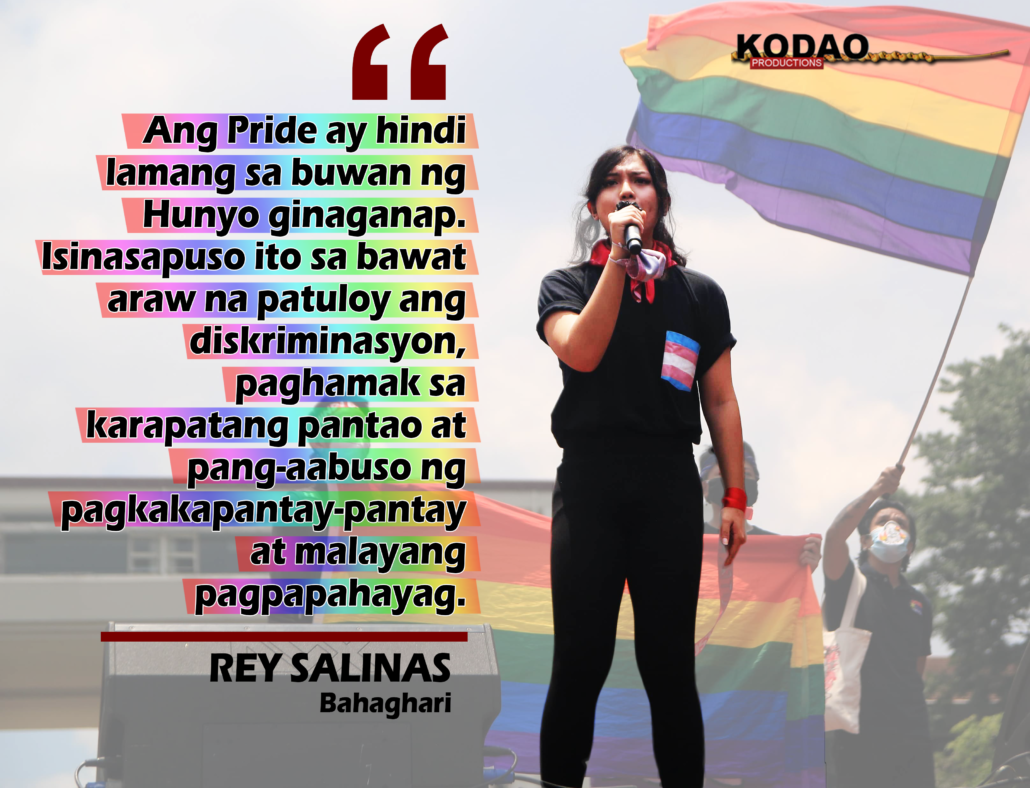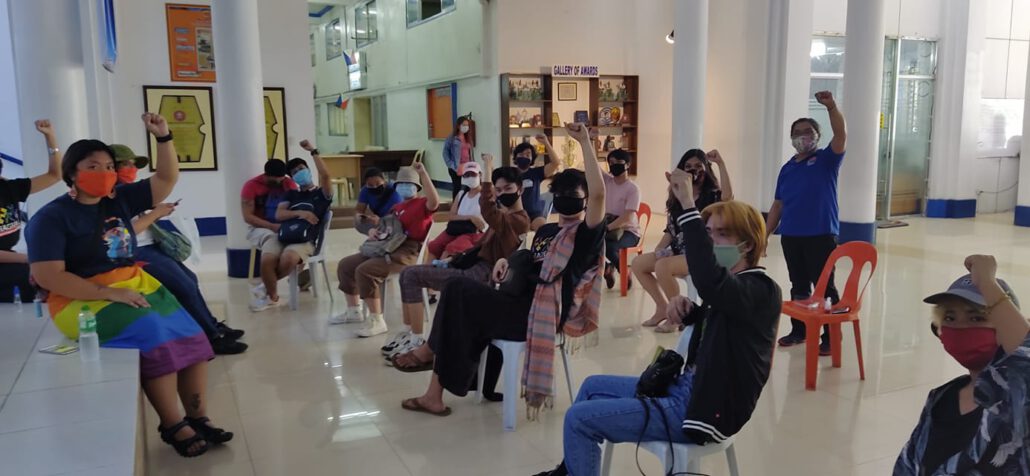China wipes out LGBTQ channels on WeChat with no explanation
Some believe the crackdown is related to the three-child policy.
The following post is the English version of a Chinese report written by Rex Yung and published on Hong Kong-based CitizenNews on July 7, 2021. It is published on Global Voices under a content partnership agreement.
By CitizenNews
At least 14 LGBTQ public channels on WeChat, the most popular Chinese social media platform, were permanently blocked on July 6, 2021. All their content vanished without a trace.
The majority of the channels were run by university-based LGBTQ groups including Purple at Tsinghua University, Colorsworld at Peking University, Gender Equality Research Association at Wuhan University and Zhihe Society at Fudan University.
Chinese Foreign Affairs spokesperson Wang Wenbin said on July 8 that the removal of LGBTQ channels on WeChat was in accordance with Chinese law:
CitizenNews’ reporters reached out to a number of group administrators through various channels, but they all declined to comment on the incident.
An LGBTQ activist commented anonymously that the incident had hit the community very hard as they don’t have many in-person opportunities to connect with other LGBTQ people — and now even virtual channels are blocked.
He revealed that many sexual minority groups had been under pressure because of June’s LGBTQ Pride Month and the 100th anniversary of the Chinese Communist Party. The community had faced many verbal attacks on social media in the past few months, but they were shocked that all their accounts were shut down so abruptly.
According to a report from Reuters, the Chinese authorities have been investigating the loyalty of the university-based LGBTQ groups since May 2021:
Many of the LGBTQ groups blocked on WeChat have been established for many years. For example, the Guangzhou-based Gay and Lesbian Campus Association of China was founded in 2006. In 2014, they published a report entitled ‘Report on the Misrepresentation and Stigmatization of Homosexuality in Chinese High School Textbooks’, criticizing textbooks that reinforced stigmas on homosexuality. One of their members even sued the Ministry of Education for discrimination.
Founded in 2005, the Zhihe Society of Fudan University is the first student organization that focuses on gender equity in China. Since its establishment, the society had run a play called ‘Monologues from the Vagina’ on campus annually until 2018 when the University authorities stepped in to ban their performance.
Earlier this year, the Society was punished with a three-month suspension for repeatedly violating the Fudan University Student Association Management Regulations. One of the violations cited by the university administrator was that it had forwarded the announcement of an online lecture on feminism organized by the University of Michigan in the United States. The act was flagged as a ‘very serious violation’ as it mobilized students to participate in activities organized by foreign forces outside of the university.
In recent years, thanks to the ideological struggle against Western culture, there is a general belief that feminist and queer movements in China are colluding with foreign forces.
Regarding the disbanding of LGBTQ accounts on WeChat, reactions are very polarized on Chinese social media. Those who support equal rights for LGBTQ people are outraged by the crackdown. Some believe that the action has something to do with the three-child policy. One comment on Weibo said:
“A surge of conservative forces. First they targeted the feminist, then they went after LGBT people. They just want you to go to bed and give birth to three children.”
Another said:
“Gays and Lesbians can’t give birth to three children, this is a policy-backed crackdown on difference.”
As for those who are against LGBTQ rights, they celebrate the disbandment of the public channels on social media and praise the authorities for stepping in to ban LGBTQ groups’ campus activities.
For example, Mei Xinyu, a researcher at the Ministry of Commerce, wrote in a WeChat post,
“This is the right way. In dealing with the perverted LGBT, we could allow their existence in silence, but we could not let them enjoy the privilege of standing above other normal people. This is an attempt to protect national security and save the Chinese society from extinction.”
Many criticize the LGBTQ community for taking part in the pride month activities on Weibo. For example, one comment said:
“You can say ‘I am gay and I am proud’. But what is the point of saying that in public? Whether you are proud of not has nothing to do with the general public. Have you been oppressed? Are the gay and lesbian being discriminated upon? The rights that they demand is a privilege in the name of the sexual minority.”
A number of posts circulating online speculate that the Chinese LGBTQ community has been infiltrated by foreign forces. Though this is widely viewed as a conspiracy theory, some cited a Weibo post by the U.S. consulates in China supporting LGBTQ rights as evidence.
One such post summed up the US’s plot against China in two points:
“First, LGBTQI divides people into different groups. This would give space for the US to sow discord and destroy the unity of the Chinese people and instigate internal conflicts;
“Second, China’s fertility rate has become so low that it must intervene, and while the country has launched the three-child policy and encouraged fertility. Against such background, LGBTQI movement would encourage more Chinese people to become infertile and sabotage China’s population plan.”
China’s official stance on homosexuality has followed a ‘Three No’ policy for many years — no support, no encouragement and no opposition.
The country decriminalized homosexuality in 1997 and removed homosexuality from the list of mental illnesses in 2001.
In early 2019, China accepted the UN Human Rights Council’s recommendations on improving LGBTQ people’s rights. Though it did not recognize same-sex-partnershipin its updated Civil Code last year.
Suppression of feminist and LGBTQ communities’ online presence has escalated in recent months.
In April, the Chinese social media platform Douban closed at least eight feminist channels. The platforms said the action was taken to prevent the spread of extremism and radical political views. One month later, Xiao Meili, a well-known feminist, was accused by online nationalists of colluding with foreign forces and supporting Hong Kong independence. Eventually, Xiao, together with more than a dozen feminists who spoke out for her, had their accounts blocked by Weibo.
However, no authority has given any official explanation on the suppressive policies. An LGBTQ rights supporter described the situation as:
“Something covers your mouth and you can’t make any noise. Who should I file the appeal to? You can’t identify who exactly is in charge. Which government authority is staging the clampdown? What kind of power are you confronting? The whole thing is so repressive, suffocating and ridiculous.”
(This report was also published by Global Voices, a content-sharing partner of Kodao.)



